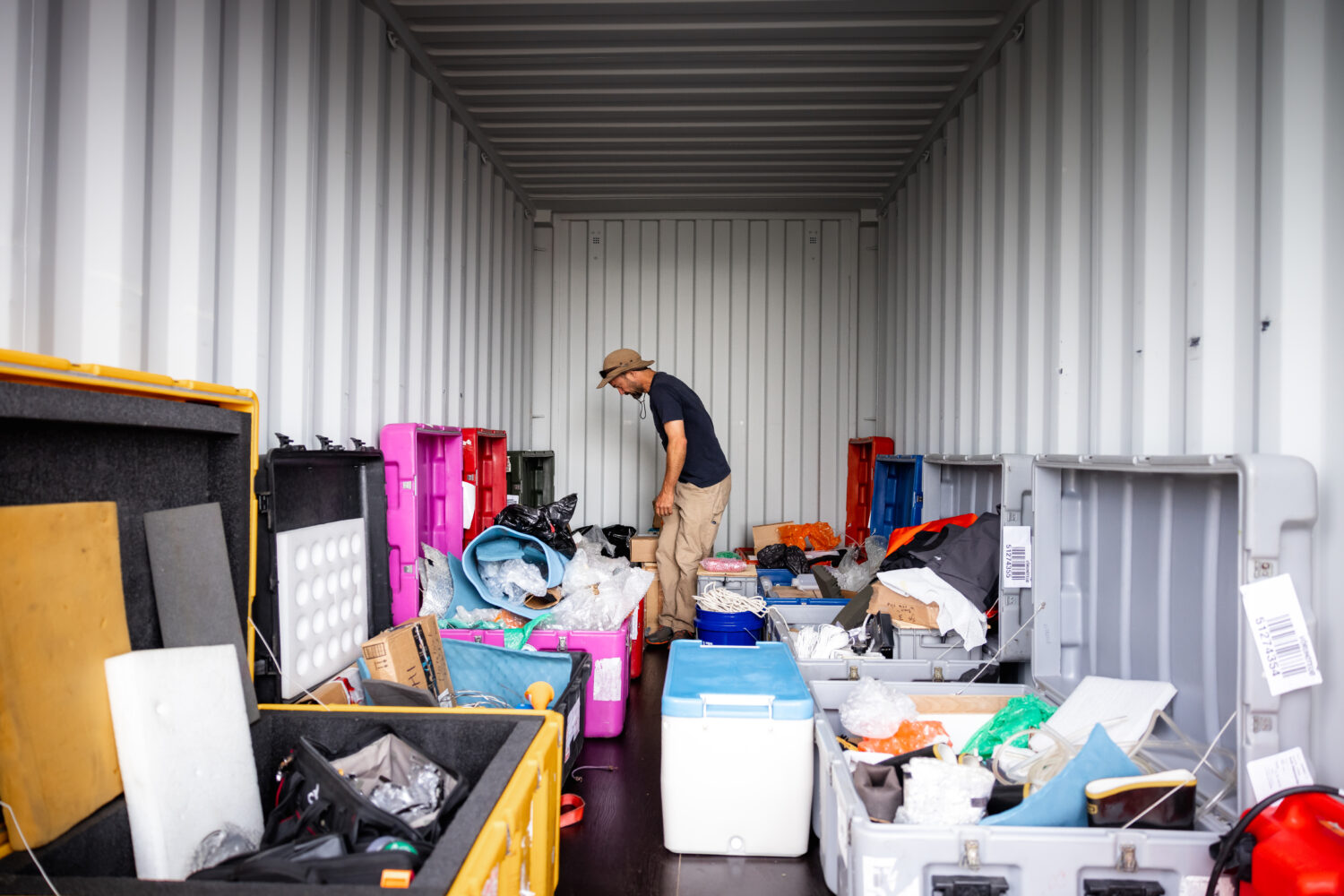
Experts share tips for covering clean technologies
Toby Koffman, a staff scientist for [C]Worthy studying carbon removal technologies, prepares equipment for fieldwork in summer 2024 in Hvalfjörður, Iceland. Photo: Thrainn Kolbeinsson at Carbon to Sea
In an effort to combat climate change, governments have since 2020 drastically increased investments in clean technologies, or “cleantech,” a suite of climate solutions that includes renewables, electric vehicles, and nuclear power. Total annual investment in clean technology and infrastructure worldwide is expected to reach $2 trillion this year, according to the International Energy Agency—twice the investment going to fossil fuels.
But as demand for clean technology grows, so do instances of misinformation and greenwashing, where companies, scientists, or journalists make misleading claims about the environmental impacts of a product. At a Nov. 10 session in the Council for the Advancement of Science Writing’s New Horizons in Science briefing at the ScienceWriters2024 conference in Raleigh, N.C., a panel of scientists and journalists shared their advice for accurate reporting on cleantech.
“I always look for word salad,” said Alicia Karspeck, co-founder and chief technology officer at [C]worthy, a nonprofit research and development organization focused on carbon-based removal technologies. A source using more complex words than necessary is often a red flag that there is missing content or a desire to disguise the less glamorous reality of a product. For example, tech companies can overuse inherently vague terms like “AI-powered” or “AI-enabled” as marketing ploys to exaggerate a product’s capabilities.
Scientists or companies may also use aspirational or sensationalizing rhetoric to mislead consumers into thinking a project is farther along in development than it truly is. They might falsely call their research “groundbreaking” or a “breakthrough.” Journalists must push organizations to be transparent about where they are, Karspeck urged, and to disclose obstacles they might be facing in their research.
Erin Sills, professor of forest economics at North Carolina State University, works in the field of nature-based climate solutions, which are strategies that rely on restoring or managing natural ecosystems to combat climate change. Sills encourages journalists investigating claims of innovation to critically inquire why a solution hasn’t already been implemented and address those barriers first.
In addition to watching for jargon, reporters should be mindful of where their information comes from. Panelist James Temple, senior editor at MIT Technology Review, remarked how journalists often center climate conversations on a small number of loud voices: The convenience of relying on existing connections over seeking new ones can win out when deadlines are tight.
Karspeck recommended drawing facts and perspectives from researchers across disciplines and institutions to hold scientists’ research accountable.
“In science, there are no big visionaries” making things happen, she noted. “It’s lots of people.”
Sills, whose research is focused on the Global South, further emphasized the importance of talking not only to more people when reporting, but to a diverse group of sources. She commented that journalists do a great job of reaching out to the stakeholders in communities impacted by climate interventions, but not to the scientists in those countries.
Sometimes, the dominating voices may not even be from scientists. Temple recalled instances of journalists quoting venture capitalists and entrepreneurs speaking about research outside their field. Temple encouraged journalists to talk to experts in their field of interest and avoid individuals with heavy conflicts of interest, such as those from the tech or fossil fuel industries.
The panel voiced caution in reporting advances in cleantech in short-form media such as TikTok videos, especially as more and more people rely on the platform for their news. Maggie Koerth, the editorial lead at climate analytics nonprofit CarbonPlan, recommended instead using such platforms to educate viewers about more foundational concepts, providing stepping stones for individuals to gain necessary background in order to engage in deeper climate discussions.
The World Economic Forum predicts a negative short-term impact on climate action from the new U.S. administration’s pledge to boost fossil-fuel production. As a result, Temple said, science journalists will play an increasingly vital role in informing the public about emerging climate solutions as honestly and fairly as possible. “If a technology is good,” he said, “it should be designed to withstand criticism.”